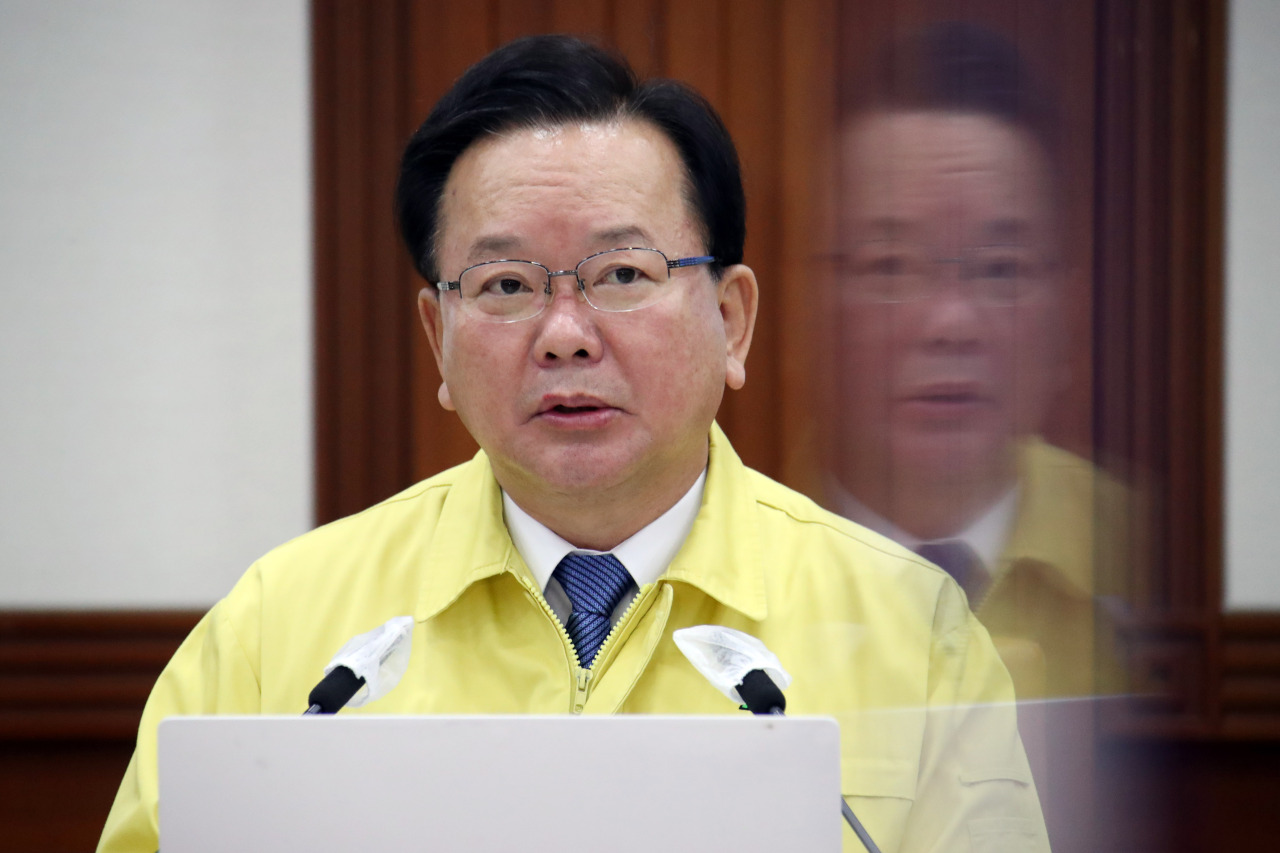S. Korea in final stage of signing contract for Pfizer's oral COVID-19 pill: PM
By YonhapPublished : Dec. 24, 2021 - 09:28

South Korea is in the final stage of signing a contract with US drug giant Pfizer Inc. to get its oral drug for COVID-19, Prime Minister Kim Boo-kyum said Friday.
"The government has been discussing a purchasing deal with Pfizer for a volume that is much more than our previously announced plan of 70,000 people," Kim said during a COVID-19 response meeting in Seoul.
"We will announce the deal in detail once we confirm the contract and our drug safety agency approves emergency use of the drug," Kim added.
Kim's remarks came after the US Food and Drug Administration granted an emergency use authorization of Pfizer's COVID-19 pill known as Paxlovid.
The government on Thursday said it was looking to purchase Paxlovid for 162,000 people from Pfizer.
The Ministry of Food and Drug Safety's emergency authorization of Paxlovid is expected to come out next week.
Kim said it is too early to say that the country is seeing a downward trend in virus infections, although daily cases seem to have stagnated around 7,000 after tightening social distancing measures from last weekend.
He added the government is focusing on securing hospital beds to a level where it can handle 10,000 patients a day.
"We are seeing improvements in hospital bed bottlenecks" he said. "The daily figure of people waiting for beds that once surpassed 1,000 has been reduced to the 300 range."
South Korea has ordered public and national university hospitals to provide more beds for critically-ill virus patients as the number of serious COVID-19 cases continued to rise.
Kim also called for people to get booster vaccine shots and ordered the disease control agency to review inoculation of children, saying that he is worried about sharp growth of infections among children under the age of 11. (Yonhap)
"The government has been discussing a purchasing deal with Pfizer for a volume that is much more than our previously announced plan of 70,000 people," Kim said during a COVID-19 response meeting in Seoul.
"We will announce the deal in detail once we confirm the contract and our drug safety agency approves emergency use of the drug," Kim added.
Kim's remarks came after the US Food and Drug Administration granted an emergency use authorization of Pfizer's COVID-19 pill known as Paxlovid.
The government on Thursday said it was looking to purchase Paxlovid for 162,000 people from Pfizer.
The Ministry of Food and Drug Safety's emergency authorization of Paxlovid is expected to come out next week.
Kim said it is too early to say that the country is seeing a downward trend in virus infections, although daily cases seem to have stagnated around 7,000 after tightening social distancing measures from last weekend.
He added the government is focusing on securing hospital beds to a level where it can handle 10,000 patients a day.
"We are seeing improvements in hospital bed bottlenecks" he said. "The daily figure of people waiting for beds that once surpassed 1,000 has been reduced to the 300 range."
South Korea has ordered public and national university hospitals to provide more beds for critically-ill virus patients as the number of serious COVID-19 cases continued to rise.
Kim also called for people to get booster vaccine shots and ordered the disease control agency to review inoculation of children, saying that he is worried about sharp growth of infections among children under the age of 11. (Yonhap)



















![[Today’s K-pop] Treasure to publish magazine for debut anniversary](http://res.heraldm.com/phpwas/restmb_idxmake.php?idx=642&simg=/content/image/2024/07/26/20240726050551_0.jpg&u=)